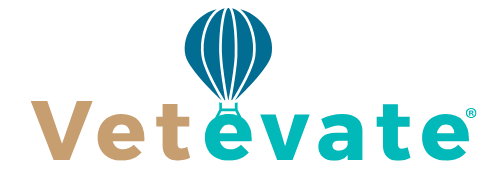When it comes to using veterinary job boards effectively, one of the most important things you can do is start with a clear plan. Job boards are powerful tools, but their value depends on how you use them. Before you begin browsing listings, take the time to define what you’re looking for. This includes not just the type of role, but also the kind of environment you want to work in, the location that suits your lifestyle, your desired compensation, your preferred hours, and your long-term career goals. Having clarity on these key elements will help you focus your efforts and avoid wasting time on opportunities that don’t align with your needs.
Once you know what you’re aiming for, you can start using the filters and search tools available on veterinary job boards more effectively. These platforms often allow you to search by job title, location, full-time or part-time status, species treated, and even by practice type. When you apply those filters based on your pre-determined goals, you’re more likely to find listings that are both relevant and exciting. Rather than aimlessly clicking through page after page of general listings, you’ll quickly zero in on roles that actually fit your criteria.
Defining your goals also helps prevent reactive decision-making. If you’re unsure of what you want, it’s easy to feel overwhelmed and tempted to apply for any position that sounds somewhat promising. But with a thoughtful plan, you can be selective and strategic. That way, when you do find a job that matches your priorities, you can apply with confidence, knowing it supports the future you’re working toward in the veterinary profession.
Create a Standout Profile and Resume
Veterinary job boards often offer features that go beyond just job listings—they also allow you to create a user profile, upload your resume, and in some cases, be visible to employers who are actively looking for candidates. One of the best practices for using these platforms is to make sure your profile is complete, professional, and tailored to the veterinary field. This means highlighting your education, certifications, clinical experience, specialties, and any continuing education you’ve pursued. A strong profile not only boosts your visibility but also demonstrates to employers that you are serious, prepared, and ready to contribute.
Your resume should also be polished and current. Include your most recent experience, highlight any areas of focus (such as small animal, large animal, exotics, or emergency medicine), and provide clear examples of your skills and achievements. Use terminology that reflects your understanding of veterinary work, but avoid jargon that might confuse someone reviewing applications quickly. Always proofread for spelling and grammar, and consider having a colleague or mentor review your resume before uploading it to the job board.
When creating your profile or submitting applications, it’s also helpful to include a well-crafted summary or objective. This brief paragraph tells employers who you are, what you’re seeking, and why you’re a strong candidate. It’s your opportunity to make a personal connection and give hiring managers a reason to look further into your application. If the job board allows for cover letters or additional documents, take advantage of those features as well. A personalized, well-written message can make your application stand out in a sea of submissions, especially when employers are short on time.
A complete and compelling profile serves another purpose—it allows job board algorithms to work better for you. Many veterinary job boards use smart matching tools to recommend jobs based on your experience and preferences. The more information you provide, the more accurate those recommendations will be, helping you uncover opportunities you might not have found on your own.
Stay Active and Set Up Job Alerts
Another best practice when using veterinary job boards is to stay active and engaged. It’s not enough to create a profile and check back once a month. The veterinary job market moves quickly, and some of the best opportunities are filled fast. By logging in regularly, you can stay up to date on new listings and respond to them while they’re still fresh. Many job boards also allow you to favorite or bookmark jobs you’re interested in, so you can revisit them later or compare options before applying.
One of the most effective tools you can use is the job alert feature. Most veterinary job boards allow users to set up email notifications based on specific search criteria. Once you’ve filtered for the kind of job you want, you can save that search and receive automatic updates when new listings are posted that match your preferences. This saves you time and ensures that you don’t miss out on positions just because you weren’t logged in that day. It’s a passive but powerful way to keep your search moving forward without constant manual effort.
When new job listings arrive in your inbox, try to respond quickly. Employers appreciate prompt applications, especially when they’re working with tight timelines. Applying early can increase your chances of being noticed before the hiring manager is overwhelmed with candidates. It also gives you more time to prepare if you’re invited to interview. Prompt engagement sends a message that you are enthusiastic and motivated, which can be an important factor in competitive hiring situations.
Staying active also allows you to observe patterns in the job market. You’ll begin to see which roles are in high demand, what employers are offering in terms of salary and benefits, and how quickly certain listings come and go. This knowledge helps you make better decisions and prepares you to negotiate when the time comes.
Customize Every Application and Follow Up
Even if you’re applying through a veterinary job board that makes it easy to send out multiple applications, resist the urge to use the same generic materials for every job. One of the most effective ways to improve your chances of landing the job you want is to customize each application based on the role and the employer. This means tailoring your resume to emphasize relevant skills, adjusting your objective to reflect the specific job posting, and writing a personalized message to accompany your submission.
Hiring managers can spot generic applications quickly, and they’re more likely to respond positively to candidates who show genuine interest in their clinic or organization. Mention something specific about the practice, such as its focus on feline care, its involvement in shelter medicine, or its emphasis on client education. This attention to detail shows that you’ve done your homework and that you’re truly interested in becoming part of their team—not just looking for any job that will take you.
After applying, don’t be afraid to follow up. While you should avoid being overly aggressive, a polite message checking on the status of your application a week or two after submission can help keep your name top of mind. It also demonstrates initiative and professionalism. Some veterinary job boards even offer built-in messaging systems that allow you to contact the employer directly without leaving the platform. Use those tools when available, and always communicate respectfully and clearly.
If you’re contacted for an interview, continue to use the job board as a resource. Review the original listing to remind yourself of what the employer emphasized, and be prepared to talk about how your experience matches those needs. After the interview, use the platform to send a thank-you message if the system allows—or follow up via email. Small gestures like this help you stand out and reinforce the impression that you’re the right candidate for the job.
Veterinary Job Boards: Aiding Your Success
Veterinary job boards are valuable tools for finding meaningful, rewarding work in animal care—but using them effectively requires strategy and consistency. By setting clear goals, building a strong profile, staying active, and customizing every application, you significantly improve your chances of finding the right role. These best practices don’t just speed up the process—they enhance your confidence, strengthen your applications, and lead to better outcomes. With a thoughtful, engaged approach, veterinary job boards become more than a place to find jobs—they become a partner in building the career you’ve been working toward.




